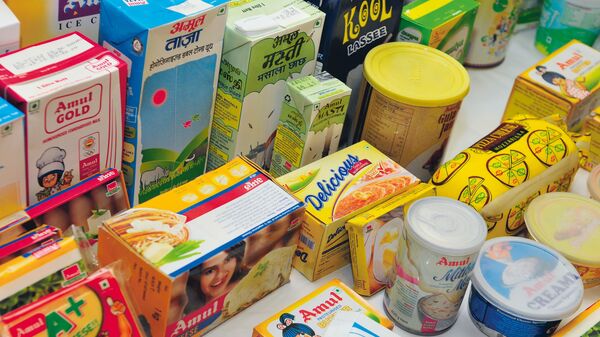It was a seemingly innocuous announcement about a well-known Indian brand entering a new domestic market. But the reaction that Gujarat Cooperative Milk Marketing Federation (GCMMF) got for its decision to launch its Amul brand of products in Karnataka was beyond its imagination.
Opposition parties in the poll-bound state kicked up a storm, portraying the move as an attempt to destroy Nandini, a brand of the Karnataka Milk Federation (KMF). They claim that Amul’s entry will destroy the state’s 25 lakh milk farmers. Caught on the back foot, the BJP-led state government has tried to allay fears while accusing the opposition of politicising the issue ahead of elections, which are due on May 10. Mint takes a closer look at the controversy.
The announcement: On April 5, GCMMF tweeted that it would soon launch Amul in Karnataka. “A new wave of freshness with milk and curd is coming to Bengaluru… #launchAlert,” the tweet read.
The reaction: The announcement triggered strong reactions both online and offline. Retaliatory hashtags #SaveNandini and #GoBackAmul soon began trending. Sensing an opportunity, opposition parties in the state – the Congress and Janata Dal (Secular), joined in.
“You have already stolen banks, ports and airports from Kannadigas. Are you trying to steal Nandini (KMF) from us?” Congress leader Siddaramaiah asked in a tweet addressed to Prime Minister Narendra Modi. JD(S) leader and former chief minister HD Kumaraswamy voiced his concern about how Amul’s entry would affect KMF’s business and the livelihood of thousands of dairy farmers in the state. He added that it is an accepted practice for state co-operatives to not enter other states that have their own co-operatives. Nandini, he said, had not forayed into Gujarat for the same reason.
Another Congress leader, DK Shivakumar, accused the BJP of trying to hijack the Nandini brand. “Kannadigas will never sell their self-respect,” he added.
State government’s response: Chief Minister Basavaraj Bommai has made it clear that Amul will not be prevented from entering Karnataka, pointing out that Nandini products are sold in other states, too. The government, he added, would take steps to help Nandini compete with Amul in the open market.
What triggered the controversy? There is no smoke without fire. The fear over Nandini’s future lies in an earlier statement of Union Home Minister Amit Shah, who said GCMMF and KMF would work together to set up primary dairies in all villages in Karnataka. Many saw this as an attempt to merge GCMMF and KMF. Despite denials by the state government, this fear persists.
How big is KMF? KMF is the second-largest dairy co-operative in the country after GCMMF. Its turnover is estimated at around ₹20,000 crore. Its network spans 22,000 villages, 24 lakh milk producers, and 14,000 co-operative societies, which procure 84 lakh kg of milk every day.
What is GCMMF’s stand? GCMMF has clarified that it plans to sell its products only on e-commerce platforms in Karnataka and has no plans to enter the general market. But few believe it.
The politics: Milk producers are spread across 120 Assembly seats in Mandya, Mysuru, Ramanagara, Kolar and Devangere regions of the state. Their support could change the outcome in many semi-urban and rural seats. Opposition parties are hoping that the controversy will translate into more votes for them. Sensing this, the BJP has repeatedly denied any merger plans. “We will send Nandini to other states. We want to develop Nandini products like Gujarat did for Amul,” said ST Somashekar, state minister for co-operation, hoping to win back the farmers.
Download The Mint News App to get Daily Market Updates.
More
Less
#Mint #Explainer #Parties #milk #AmulvsNandini #controversy #Karnataka #elections
